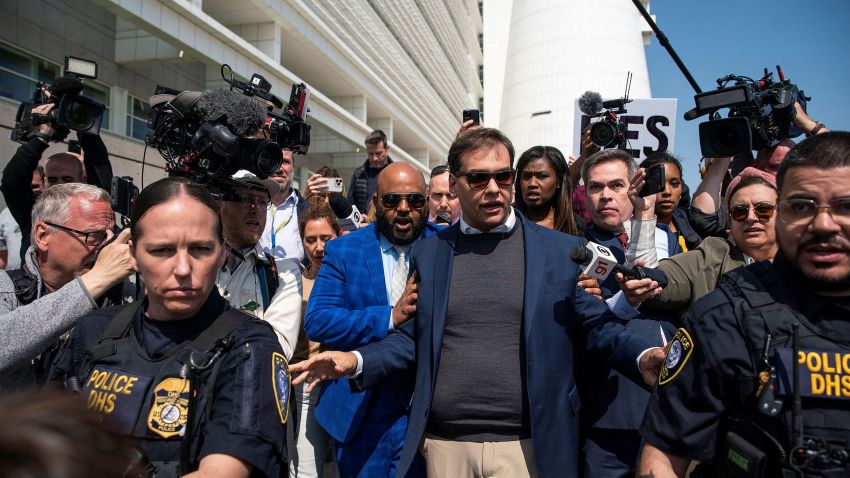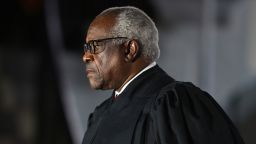Editor’s Note: Norman Eisen is a CNN legal analyst who was former President Barack Obama’s ethics czar and impeachment counsel to the House Judiciary Committee in 2019-2020. Josh Stanton is Of Counsel at Perry Guha LLP. He previously served as co-director of the Criminal Practice Clinic at Vanderbilt Law and as a public defender in Memphis, Tennessee. Fred Wertheimer is president of Democracy 21, a nonpartisan, nonprofit organization that works to protect and strengthen our democracy. The views expressed in this commentary belong to the authors. View more opinion at CNN.
Congressman George Santos (R-NY) has lied repeatedly about matters large and small. While fabrications about his religion, education and college sports career may not be legally actionable, making false statements on government filings are, as is obtaining money under false pretenses.
With Wednesday’s profusely detailed indictment, Santos faces a total of 13 charges of wire fraud, money laundering, theft of public funds and making false statements to the House of Representatives. While he has entered a “not guilty” plea to all counts and is innocent until proven guilty, it appears to us he is on a slippery slope to a likely conviction and an early exit from Congress.
As analysts with a collective century of shared experience in congressional and criminal cases, it appears to us that Santos was even more incompetent as an alleged criminal than he is as a congressman. Perhaps the most notable aspect of the indictment is how egregious the alleged wrongdoing was. Prosecutors cited emails and text messages that demonstrate how Santos misled individuals about what they were contributing money to and how those funds would be spent to benefit his candidacy, before using that money for personal expenses such as designer clothes.
The indictment also lays out how he blatantly misrepresented his finances in documents filed with the House and engaged in a scheme to collect unemployment insurance benefits from the New York Department of Labor at a time when he was in fact employed by an investment firm with a six-figure salary.
The indictment is a “speaking” one that lays out detailed evidence of the allegations as if speaking to a jury. In so doing, it is our view that it makes an overwhelming if not yet proven criminal case against the congressman. He has responded with an initial “not guilty” plea and proclaimed his innocence. We do not yet know whether Santos will follow that by attempting to negotiate a plea deal. But that is what most criminal defendants in federal court ultimately do. In making that decision, Santos would be well-advised to consider the outcomes for others who have been in comparable positions.
Consider Rep. James Traficant of Ohio, who was indicted in 2001 on a number of charges, including bribery, racketeering and filing false income tax returns. Things did not end well for Traficant, who was convicted after trial in 2002, expelled from Congress and ultimately served seven years in prison. We followed that case closely at the time, and the evidence prosecutors laid out against Santos is no less powerful.
Rep. Michael Myers should also prove a cautionary tale for Santos. Myers was caught in an FBI sting — on videotape — accepting a $50,000 bribe from undercover FBI agents. He was convicted of bribery and conspiracy, served prison time and expelled from Congress. While Santos’ case does not appear to include video, the vast paper trail he allegedly left behind seems to constitute a similarly damning smoking gun.
Even before all of this, there was good reason to expect Santos would confront increasing pressure to exit Congress early in the face of the House Ethics Committee probe. Indeed, such a resignation could come as part of a guilty plea and a reduced sentence.
Since Santos’ political future is hardly looking bright, his defense lawyers might suggest stepping down as a way to show his acceptance of responsibility as part of the negotiations to get a more favorable plea deal. That may come to seem more appealing to Santos, who has so far defied calls to resign and said Wednesday that he still plans to run for reelection.
The foreseeability of this mess makes the House Republicans’ tolerance of Santos all the more disturbing. Despite widespread reporting on Santos’ many lies, House Speaker Kevin McCarthy welcomed the freshman’s vote in the tight speakership contest and has so far refused to condemn his colleague. While McCarthy withdrew his support for Santos’ reelection campaign on Wednesday, that is hardly sufficient given the unusual and overwhelming evidence of wrongdoing here. McCarthy should at the very least strongly repudiate Santos and consider an immediate vote to expel him.
Ethics, it seems, for McCarthy and many other Republicans, are not of concern if Santos can help them maintain their grasp on power for the moment. Thankfully, the Justice Department has acted to hold Santos accountable. Despite his bluster about fighting it out, with such an extensive record of evidence weighing against him, he would be well advised to resign from Congress and negotiate a plea deal.





